Sustainable building design for tropical climates: principles and guidelines for EAC
Sustainable building design for tropical climates: principles and guidelines for EAC
The course provides the basic necessary information for designing climate responsive buildings, aiming to minimise energy demand and to achieve thermal and visual comfort in EAC (East African Community) and other tropical countries with similar climates.
Introduction to the Sustainability series
This MOOC is part of the series on “Sustainability”, which is one of the world’s major challenges of today and tomorrow and requires multidisciplinary competences. The series provides technical knowledge on a variety of topics, such as sustainable building, energy transition, water management and food waste prevention.
See the full seriesCourse description
In 2010 the worldwide building sector was responsible for 24% of the total GHG emissions deriving from fossil fuel combustion, second only to the industrial sector, but, if the embodied energy of construction materials is included, the share is far higher and the building sector becomes the prime GHG emitter.
Moreover developing countries are going to play a decisive role in the future world energy scenario, as a consequence of their economic development. Industrial energy consumption will grow, and a dramatic increase in energy consumption for transport can be expected, with the growth in the number of vehicles on the roads – if the currently accepted worldwide approach to mobility does not change.
The increase in energy consumption in the building sector can be expected to be even more dramatic, not only because air conditioning will spread and the number of domestic electric and electronic appliances will grow, but also because of the increase in the number of buildings.
In that respects, the aim of the course is to provide basic necessary information for designing climate responsive buildings in order to minimise energy demand and to achieve thermal and visual comfort in EAC (East African Community) and other tropical countries with similar climates.




This course is offered in the framework of the project “Promoting Energy Efficiency in Buildings in East Africa” which is an initiative of UN-Habitat in collaboration with the United Nations Environment Programme (UNEP), the Global Environment Facility (GEF) and the governments of Kenya, Uganda, Tanzania, Rwanda and Burundi.
Intended Learning Outcomes
Prerequisites
No prerequisite knowledge is required.
Activities
Over and above consulting the content, in the form of videos and other web-based resources (the reading path), you will have the opportunity to discuss course topics and to share ideas with your peers in the Forum of this MOOC (the communication path). The forum is freely accessible and participation is not guided; you can use it to compare yourself with other participants, or to discuss course contents with them.
Assessment
Your final grade for the course will be based on the results of your answers to the graded quizzes. You have unlimited attempts at each quiz, but you must wait 5 minutes before you can try again. You will have successfully completed the course if you achieve 60% (or more) of the total course score. The maximum score possible for each quiz is given at the top of the quiz. You can see your score in the quiz on your last attempt or on the 'Grades' page.
Certificate
You must be registered in POK through Politecnico di Milano personal account to obtain the Certificate of Accomplishment. It will be released to anyone who successfully completed the course by achieving at least 60% of the total score in the graded quizzes and filling the final survey. You will be able to download the Certificate of Accomplishment directly from Politecnico di Milano web services. The Certificate of Accomplishment does not confer any academic credit, grade or degree.
Information about fees and access to materials
You can access the course absolutely free of charge and completely online.
At the end of the course you can download the handbook “SUSTAINABLE BUILDING DESIGN FOR TROPICAL CLIMATES. PRINCIPLES AND APPLICATIONS FOR EASTERN AFRICA”.
The handbook offers an easy-to-use tool that provides general guidelines and basic information on the physics of buildings, together with all of the practical instruments necessary for designing a sustainable-energy building in a tropical climate.
Course faculty

Federico M. Butera
Federico M. Butera, Emeritus Professor of Environmental Technical Physics at the Politecnico di Milano, is UN-Habitat consultant for the development of handbooks on sustainable building and community design in tropical climates and for the design and implementation of training courses on the same subjects in East Africa. For more than 40 years he has been actively concerned in the field of solar energy applications, low energy architecture and sustainable urban development, pioneering the introduction of the topic “sustainable building design” in the architecture students’ education.
He has been involved in many research tasks of the IEA as well as in several EC research programs and in UN and World Bank development projects dealing with renewables and efficient use of energy at building and community scale. Besides his wide scientific production he is also author of books, articles and videos on energy issues for non-specialised audiences. In the last years he has been involved in the design of low and zero energy buildings and communities in Italy, China, Hungary and Niger.
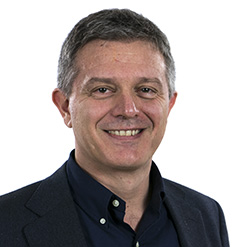
Niccolò Aste
Niccolò Aste, is a Full Professor of the Dept. of Architecture, Built Environment and Construction Engineering.
He has been actively engaged in several National and International research activities related to energy efficiency of the built environment and to the exploitation of renewable energy sources, with particular reference to the topics of PV technology and its building integration.
Over the years, he has significantly contributed to energy research and has more than 100 scientific publications including three books on the aforementioned issues and research themes. Most relevant publications and research activities deal with the building integration of innovative LSC, PV and PV/T components a well as sustainable buildings technology.
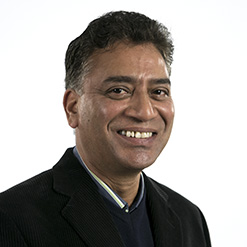
Rajendra S. Adhikari
Rajendra S. Adhikari is currently working as Associate Professor at the Dept. of Architecture, Built Environment and Construction Engineering, Politecnico di Milano.
Over the years, he has been participating in various National and International research projects. His research work is mainly focused on renewable energy, energy efficiency in buildings, energy conservation and low energy technologies. He is the author and co-author of more than 90 publications including two books and scientific papers in various International/National Journals of repute and conferences/seminars.
He has been the member of the editorial board of the international journal ISRN Renewable Energy (The International Scholarly Research Network Publishing). Currently he is the member of the editorial board of Energy and Power (Scientific & Academic Publishing) and Current Advances in Energy Research (American V-King Scientific Publishing).
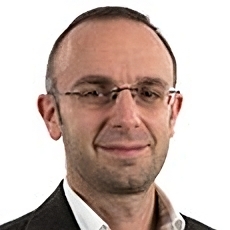
Claudio Del Pero
Claudio Del Pero is an Associate Professor of the Architecture, Built Environment and Construction Engineering Department.
He is actively involved in research and advisory activities related to energy efficiency of the built environment and to the exploitation of renewable energy sources, with particular reference to the topics of PV technology and distributed energy generation.
Over the years he has been involved in various National and International research projects related to the exploitation of renewable energy sources, energy efficiency in the built environment and energy management.
Since 2009 he cooperates with the VISPE association (Italian Volunteers for Solidarity in Emerging Countries) for the design and the construction of stand-alone photovoltaic systems for off-grid users and a field hospital in Burundi.
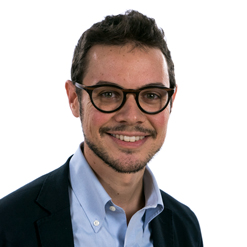
Fabrizio Leonforte
Fabrizio Leonforte is an Associate Professor fellow at Department of Architecture, Built environment and Construction engineering. He has carried out different theoretical and experimental works on renewable energy and energy efficiency in buildings with special focus on the application of hybrid PVT systems.
Since 2013 he is lecturer in two master on the topic of photovoltaic systems and zero energy buildings design at Politecnico di Milano.
He has been also involved as technical advisor in several national and international researches as well as in different project with NGOs and Universities for capacity building of local staff.
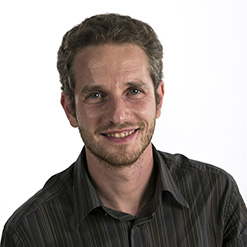
Manlio Mazzon
Manlio Mazzon, graduated in Architecture at Politecnico di Milano in July 2008, has achieved a Ph.D in Technology and Design for Environmental and Building at Politecnico di Milano in January 2016, discussing a thesis on “Development And Use Of Dynamic-State Simulation Tools Suited For Energy Performance Optimization In The Integrated Architectural Design Approach”.
In recent years, he focused on the development of a SketchUp-based interface for building energy dynamic-state simulation carried out by EnergyPlus. Also, he mainly dealt with building energy optimization during the design phase and with energy dynamic-state models and related evaluation tools.
He actively collaborated with teaching activities, both in university and in professional training courses on zero energy buildings issues.
Contact details
If you have any enquiries about the course or if you need technical assistance please contact pok@polimi.it. For further information, see FAQ page.